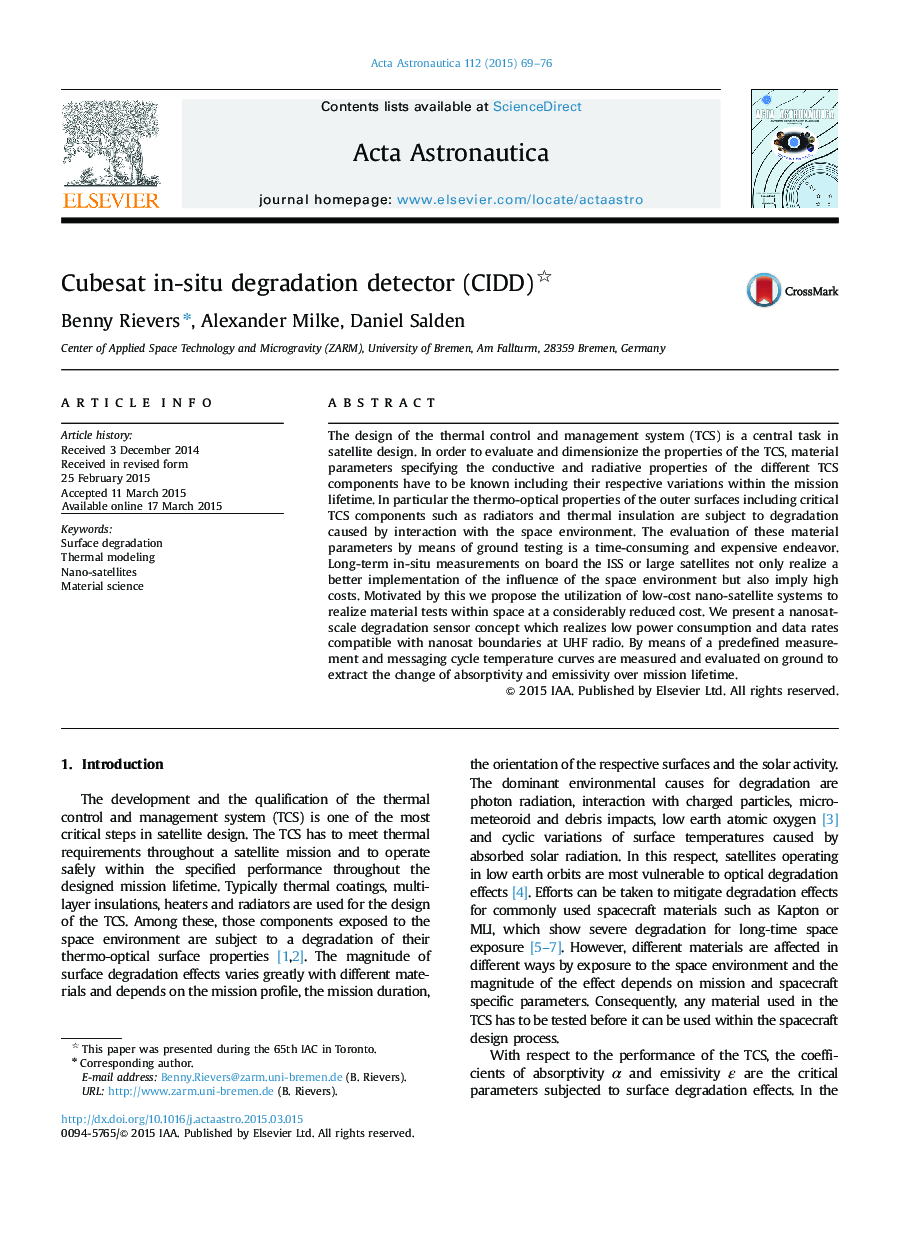| Article ID | Journal | Published Year | Pages | File Type |
|---|---|---|---|---|
| 8056596 | Acta Astronautica | 2015 | 8 Pages |
Abstract
The design of the thermal control and management system (TCS) is a central task in satellite design. In order to evaluate and dimensionize the properties of the TCS, material parameters specifying the conductive and radiative properties of the different TCS components have to be known including their respective variations within the mission lifetime. In particular the thermo-optical properties of the outer surfaces including critical TCS components such as radiators and thermal insulation are subject to degradation caused by interaction with the space environment. The evaluation of these material parameters by means of ground testing is a time-consuming and expensive endeavor. Long-term in-situ measurements on board the ISS or large satellites not only realize a better implementation of the influence of the space environment but also imply high costs. Motivated by this we propose the utilization of low-cost nano-satellite systems to realize material tests within space at a considerably reduced cost. We present a nanosat-scale degradation sensor concept which realizes low power consumption and data rates compatible with nanosat boundaries at UHF radio. By means of a predefined measurement and messaging cycle temperature curves are measured and evaluated on ground to extract the change of absorptivity and emissivity over mission lifetime.
Related Topics
Physical Sciences and Engineering
Engineering
Aerospace Engineering
Authors
Benny Rievers, Alexander Milke, Daniel Salden,
